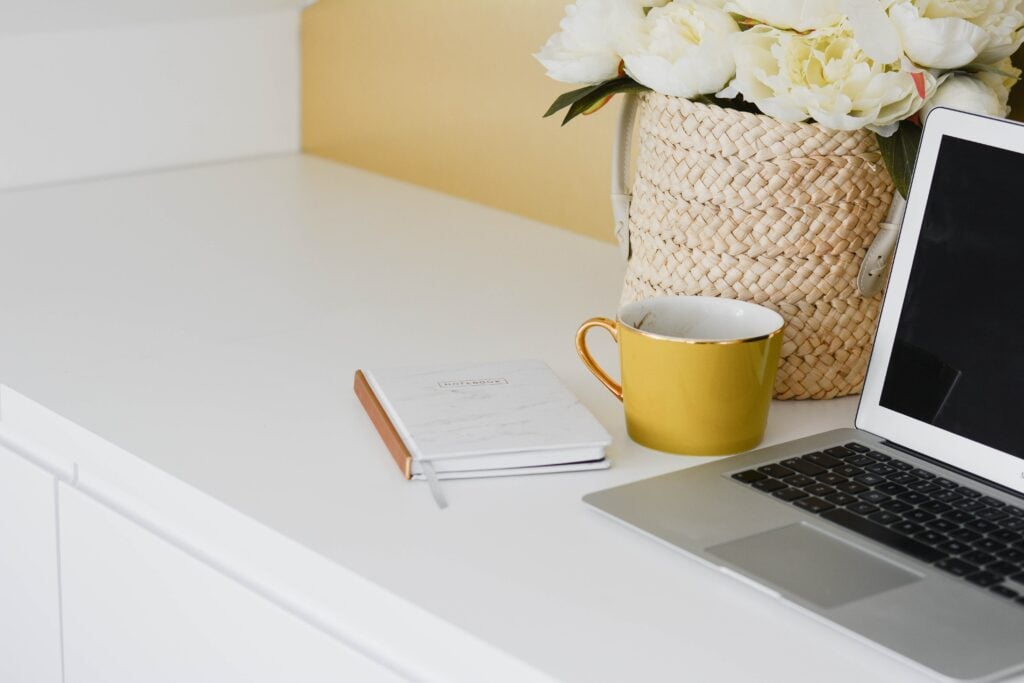When the Covid-19 pandemic first struck, we saw workers pack up their desks and make home their new offices. Now, over a year later, working from home is still commonplace. Inspired by Mental Health Awareness Week and the continued effort we are all making to better our personal wellbeing and that of those around us, we compiled a list of our favourite tips to help look after your health whilst working from home.
Our top tips to boost the teams productivity and keep morale high:
1) Get ready for work.
The routine you keep in the morning can be an attributing factor to your daily mindset. The temptation to make the switch from work clothes to pyjamas is a strong one, however, it can reduce productivity.
Set your alarm, dress for the day, plan a nice breakfast, brush your teeth. A few ideas on how your morning routine can get you ready for a good day at work without you even knowing. It can also signal to those you live with that you are in “work mode” and are not to be disturbed.
2) Create a designated workspace.
Set up a separate, designated working area away from any distractions you may have in your home. A dedicated area to work in will help you concentrate and also separate your home life from your work life. Not everyone has the luxury of a home office to use whilst working at home, however, it is important to mark an area that is yours. It also makes it easier to step away on breaks, lunch and at the end of the day.
Unique working idea: Create mobile workspaces. A few options around the house where you can work. Give yourself a set time at each workstation to keep your day fresh, and keep you active.

3) Take regular breaks.
Make sure you are taking your entitled break times in full. Stepping away from work and enjoying your break can help your body refresh and can boost productivity levels. If you have the luxury of a longer lunch break, try stepping away from your house and go for a walk.
Helpful tip: Try setting an alarm to remind you to take your breaks, move away from your desk and move your body.
4) Minimise distractions.
Where it is possible, try and keep distractions to a minimum. Keep your phone away from your desk, avoid distractions such as TV and online streaming. It is not just technology that can pose as a distraction to your working day. Household chores such as laundry and the washing up can also take you away from your desk and your work.
5) Keep in regular contact with your colleagues.
If you are used to working in an office environment, “water cooler” chat is something we can take for granted. Working remotely shouldn’t affect the way you communicate with your team. Daily or weekly catch-ups over video call can be a good way to boost morale, combat loneliness and maintain a sense of normalcy. These catch-ups don’t have to be about work – simply checking in on your colleagues can boost relationships and morale.
Managers Tip: Make yourself accessible. Let your team know how they can best reach you if they are in need.

6) Create a to do list.
Create an outline for your week and make a to-do list of all the tasks you need to accomplish. You can take it one step further and allocate time frames to each activity to maximise your efficiency and prevent you from overworking on one task. Make sure you leave time in your day to take breaks. Overworking can leave you feeling overwhelmed.
7) Set boundaries.
Create boundaries between your personal and work life. Be clear with your communication to your colleagues about what you are willing to do whilst working from home, and where you draw the line. Having your home as your office can lead to increased feelings of pressure to work for longer than contracted. Make sure you switch off all work devices when your day is finished. If you are connected to smartphones, turn off notifications when you are out of work hours.
8) Acknowledge the difficulties working from home can pose.
It is perfectly normal to find the transition into working from home a difficult one. Remind yourself that you will face challenges and try to not place too high of expectations on yourself. You are doing the best you can in unfamiliar situations.
Remember and remind yourself, feelings of loneliness isolation, stress and anxiety are completely normal and you are not alone. If you are finding you may need some additional help, it is always out there for you. The NHS and Mind Charity have excellent resources if you are struggling.
Cut yourself some slack! You are doing the best you can.

